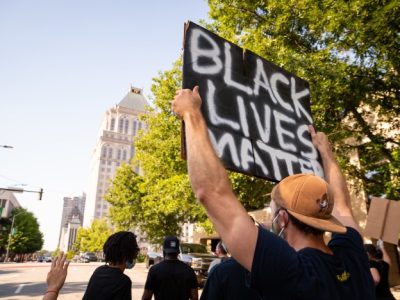It’s a dismaying statistic: More than a third of women in the United States have experienced rape, physical violence and/or stalking by an intimate partner in their lifetime, according to a 2010 Center for Disease Control survey.
Yet, intimate-partner violence remains largely invisible and misunderstood, and efforts to address it are under-resourced.
Shame, stigma and cultural myths about why abuse occurs propagate chronic underreporting. Many women don’t disclose abuse due to fear of law enforcement, because they’re unaware of free, available resources or because they don’t believe their abuse warrants intervention.
A vexing characteristic of intimate-partner violence psychology is the tendency to forgive increasingly lethal abusers; domestic violence also breeds an atmosphere in which women struggle to find alternative housing due to financial dependence and social isolation. Sometimes “getting out” isn’t enough; women are most likely to be murdered in the days after leaving their abuser.
This cycle of violence is as insidious as it is vicious. When women do report, navigating government systems while processing trauma and plan-making is re-traumatizing and overwhelming, especially when children are involved.
The Family Justice Center model — which is being used in Greensboro and Winston-Salem — emerged in response to these obstacles, providing trauma-informed, comprehensive care in facilities where representatives from the court system, health and human services, law enforcement and nonprofit advocacy groups work collaboratively to help victims and survivors of domestic violence, sexual assault, child abuse and human trafficking. Community members can access therapy, forensic examinations and acquire protective orders in the same building.
Intimate partner violence is a public health crisis; amassing critical community resources bears outcomes of inherent significance, but research also shows that interrupting and preventing it generates long-term community benefits; boys who witness domestic violence are twice as likely to become abusers.
Though the Office on Violence Against Women in the US Justice Department recognizes the Family Justice Center model as a best practice in the field of domestic violence intervention and prevention services, the approach is no panacea. Policies must change and even the most dynamic, culturally-competent centers must grapple with the challenge of opening access to justice and care for uniquely vulnerable populations: LGBTQ, low-income, trafficked, migrant and undocumented community members.
But it’s progress.
Join the First Amendment Society, a membership that goes directly to funding TCB‘s newsroom.
We believe that reporting can save the world.
The TCB First Amendment Society recognizes the vital role of a free, unfettered press with a bundling of local experiences designed to build community, and unique engagements with our newsroom that will help you understand, and shape, local journalism’s critical role in uplifting the people in our cities.
All revenue goes directly into the newsroom as reporters’ salaries and freelance commissions.





Leave a Reply